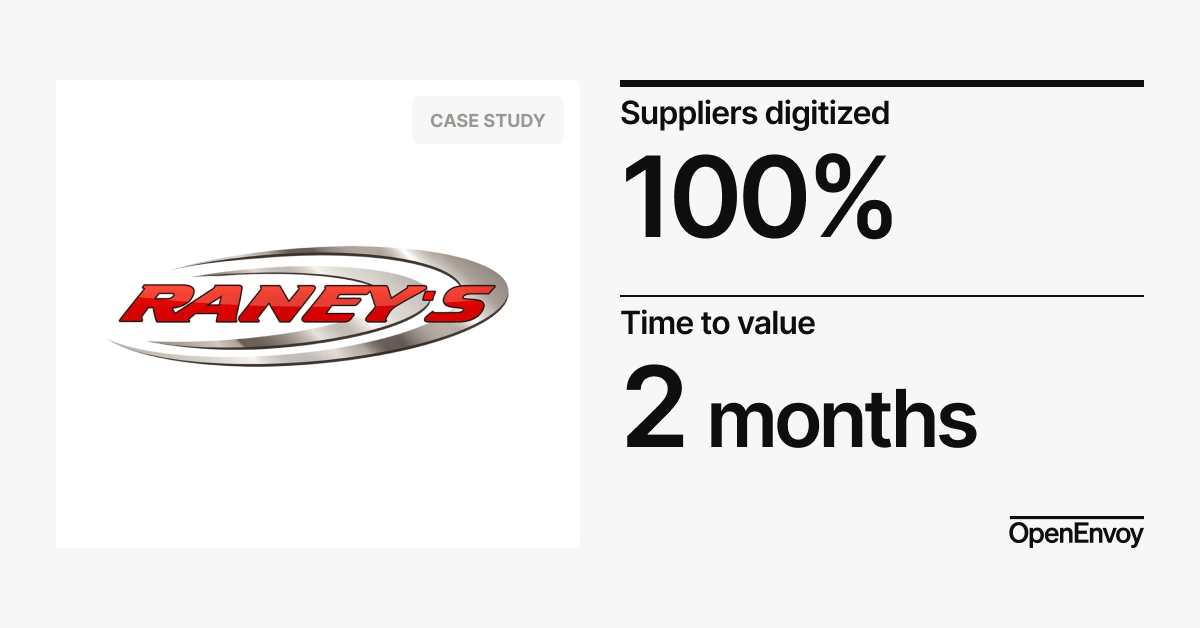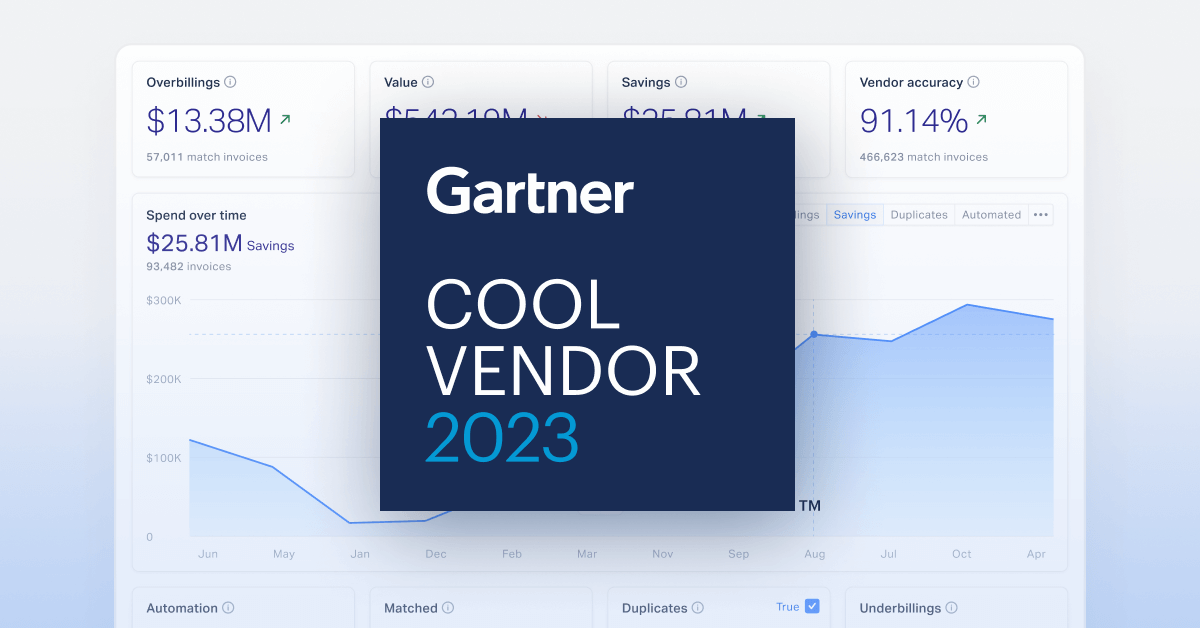

With a dizzying amount of changing costs and complex contracts in many businesses, real-time audit of invoices is increasingly necessary to maintain cost competitiveness.
Companies lacking AI-powered robust systems may face financial inefficiencies and losses. Here’s why finance, procurement, supply chain, and compliance leaders should prioritize real-time invoice audits.
Traditional Methods Fall Short
Overbilling by suppliers is worryingly common. Approximately 12% of all invoices contain some type of overbilling. To identify overbilling and prevent overpayment, companies must systematically validate every invoice they pay.
Overbilling in simple transactions can be spotted easily be comparing invoices to associated purchase orders. When the final amount owed to the supplier isn’t fully know at the time of purchase, companies struggle to identify problem invoices.
Many organizations rely on outdated methods like blanket purchase orders and post-audit processes to manage variable costs in supplier invoices. These methods often fail to manage variable costs effectively and ensure corporate control. Post-audit practices only identify discrepancies after payments, leading to significant preventable losses.
Applied AI Delivers Invoice Audit in Real Time
Now, variable costs can be fully audited in real time to identify overbilling and prevent overpayment. Deployed as part of end-to-end AP or alongside other AP technology, Applied AI solutions fully audit each invoice at the line-item level. Invoices, POs, receipts, contracts, price lists, market prices, shipping records, and other information is captured from the source. Multi-way auditing uses AI to compare these records and calculate expected invoice amounts. Supplier invoices are compared and any issues are identified within milliseconds.
As per the 2023 Gartner® report “AP real-time auditing solutions allow organizations to validate whether a payable is accurate and genuine without the need for manual review. Companies deploying these solutions find that they typically pay for themselves within the first year of use. Cash is difficult to get back once it is paid out, and in the case of fraud, may be impossible."
Gartner, Hype Cycle for Procurement and Sourcing Solutions 2023 Authors: Kaitlynn Sommers, Micky Keck, Lynne Phelan, Naveen Mahendra, Cian Curtin, Chaithanya Paradarami GARTNER is a registered trademark and service mark of Gartner, Inc. and/or its affiliates in the U.S. and internationally and is used hereinwith permission. All rights reserved. Gartner does not endorse any vendor, product or service depicted in its research publications, and does not advise technology users to select only those vendors with the highest ratings or other designation. Gartner research publications consist of the opinions of Gartner’s research organization and should not be construed as statements of fact. Gartner disclaims all warranties, expressed or implied, with respect to this research, including any warranties of merchantability or fitness for a particular purpose.
Where Invoice Audits Are Necessary
Many companies see opportunities to boost margins with real-time invoice audit. To understand where variable costs at your company lead to these opportunities, look for:
- Variable Material Costs: Industries dealing with materials like copper, cheese, or corn need to match invoices with fluctuating market prices to ensure accurate billing. In businesses paying for these commodities, the AP team needs to ensure that, per the terms of the agreement, the invoiced price matches the market price on the day of the transaction.
- Price by weight: many companies buy based on actual weights, “catch weights” in food. To verify invoices, they must calculate the price of each item according to weight and agreed price.
- Dynamic pricing: Retailers and manufacturers often deal with suppliers who frequently update their price sheets. Real-time audits ensure invoices reflect the most current prices, preventing errors.
- Discounts and Promotions: Special deals such as limited-time or volume-based discounts complicate invoicing. Real-time audits verify all discounts are applied correctly, reflecting the latest agreements and purchase volumes.
- Complex Trade Terms: In global trade, goods ownership transfer points vary, each with specific invoicing terms. Real-time audits verify correct reflection of these terms in invoices.
- Logistics and Freight Costs: In logistics, invoices include complex freight charges. Real-time audits allow for meticulous cross-referencing with contracts and freight documents, ensuring accuracy.
- Demurrage: A subset of #6, Demurrage is a fee charged for exceeding the agreed time for loading or unloading a ship, known as laytime. Real-time auditing is required to calculate when the goods were picked up relative to the contract terms.
Final thoughts
Adopting real-time invoice audits is a strategic move to optimize spending, protect margins, and improve efficiency. OpenEnvoy helps prevent losses to overbilling and duplication for companies with high variable cost spend. By implementing this technology, leaders in finance, procurement, and supply chain can reduce effective costs, ensure compliance, and improve their bottom line.
Serious about protecting your cashflow?















